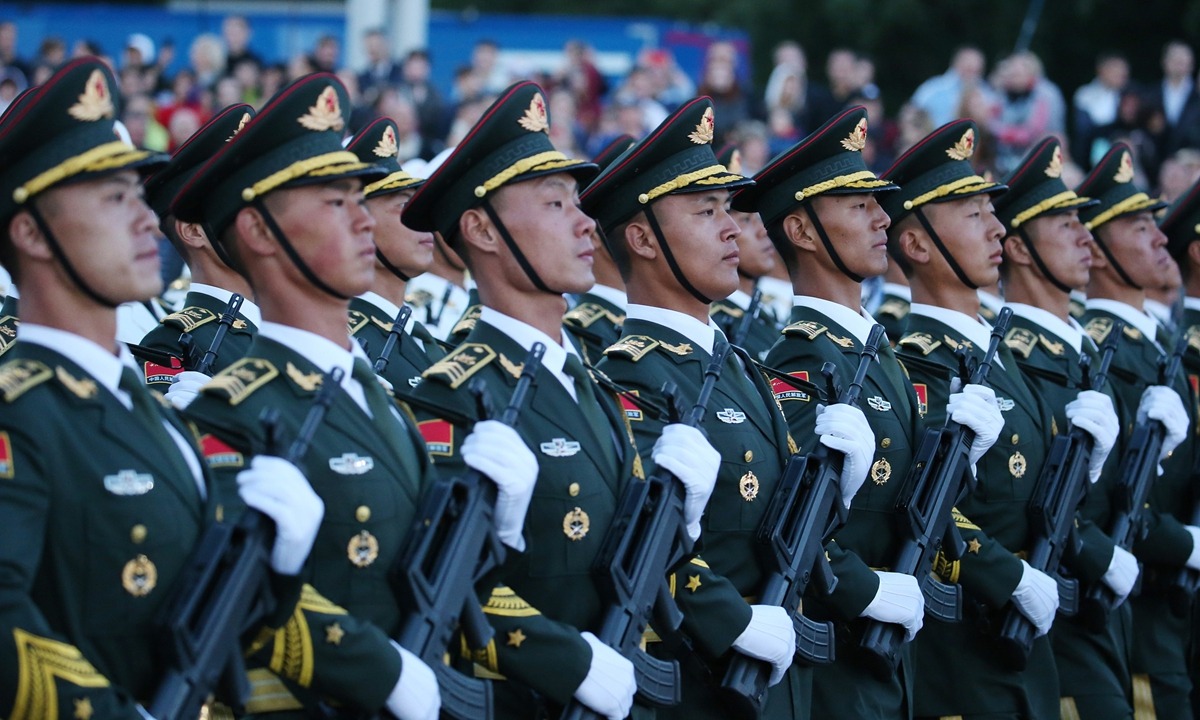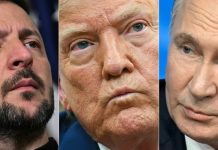Chinese Defence Minister Dong Jun is under investigation for corruption, as reported by the British newspaper The Financial Times. This makes him the third consecutive Chinese defense minister to face corruption allegations, dealing a significant blow to President Xi Jinping’s military modernization ambitions.
Chinese Defense Minister Dong Jun is reportedly under investigation for corruption as part of the Communist Party’s ongoing anti-graft campaign within the military.
According to the British daily, which cited US officials familiar with the matter, Admiral Dong is being scrutinized as part of a broader probe into corruption within the People’s Liberation Army (PLA).
The Chinese Foreign Ministry dismissed the claims on Wednesday, calling them “just shadow-chasing.” Despite these denials, the reported investigation into Admiral Dong highlights growing scrutiny within China’s military leadership, as two of his predecessors are facing corruption allegations.
Dong is the third consecutive defense minister to be targeted, with predecessors Wei Fenghe and Li Shangfu already expelled from the Communist Party and under investigation for accepting bribes.
Admiral Dong Under Scrutiny
Admiral Dong Jun, ensnared by President Xi’s sweeping anti-graft campaign in the People’s Liberation Army (PLA), is reportedly under investigation, according to US officials cited by the Financial Times. However, the specific allegations remain unclear, and Admiral Dong has not publicly addressed these claims.
Admiral Dong, a former PLA Navy chief, was last seen internationally on November 21, when he delivered a speech at the 11th ASEAN Defense Ministers’ Meeting in Laos.
There, he declined a meeting with U.S. Defense Secretary Lloyd Austin, citing ongoing tensions over Taiwan. Austin expressed disappointment, noting that Dong had recently played a key role in improving military relations between the U.S. and China, with the two nations holding commander-level talks for the first time in September this year.
While in Laos, Admiral Dong engaged with defense leaders from New Zealand, India, Malaysia, and ASEAN’s secretary-general. However, earlier this year, Dong was not appointed to the Central Military Commission (CMC)—China’s top military decision-making body— in an unusual development that has raised questions about his tenure.

Pattern Of Corruption Scandals In China’s Military
If true, Admiral Dong Jun will become the third consecutive defense minister to face corruption allegations, highlighting an intensifying anti-corruption campaign within China’s military.
State media has confirmed that Dong’s predecessors, Wei Fenghe and Li Shangfu, have been expelled from the Communist Party and are under investigation for graft. If the investigation against Dong is confirmed, it would signal a further widening of the crackdown under President Xi Jinping.
Admiral Dong assumed the role of defense minister in December 2023, replacing General Li Shangfu, who was dismissed just seven months into the job over allegations of accepting bribes in exchange for favors—a violation of military and party discipline.
Before Li, Wei Fenghe served as defense minister for five years but was similarly accused of abusing his position to secure improper benefits in personnel arrangements.
Both Wei and Li are expected to face prosecution in what is becoming one of the most significant corruption scandals to hit the People’s Liberation Army (PLA).
Notably, Wei previously led the PLA Rocket Force, while Li oversaw advanced weapons development, including missile systems. The Rocket Force itself has been under scrutiny, with its former chief and chief of staff expelled and investigated in July 2023.
The crackdown has extended to state-owned defense enterprises, with three senior officials from missile defense organizations removed from their positions in December 2023.
These developments reflect the broader reach of President Xi Jinping’s anti-corruption campaign, which appears to be targeting China’s military leadership.
Xi Jinping’s Anti-Corruption Drive In The Military
Since taking power, Chinese President Xi Jinping has solidified his authority with a historic third term, positioning himself as the most powerful leader since Mao Zedong. However, his regime faces significant challenges, including a surge of corruption within both the military and party ranks.
Xi’s anti-corruption campaign, launched in 2012, was initially perceived as a drive for clean governance. However, critics argue it has become a tool for eliminating political rivals and consolidating personal power.
Xi’s crackdown on corrupt generals aligns with his broader goal of transforming the People’s Liberation Army (PLA) into a world-class, loyal military force. Speaking at a Central Military Commission Political Work Conference, he cited “deep-seated problems” within the PLA, stressing the need for “soul-searching reflections” and “earnest rectifications.” He also emphasized, “The gun barrels should always be in the hands of those who are loyal and reliable to the party, and there must be no place for corrupt elements to hide in the military.”
Over the past decade, the anti-corruption drive has led to the removal or investigation of numerous senior military officials. Notably, nine top generals, including PLA Rocket Force and Navy commanders, have been dismissed. In December 2023, three senior executives from state-owned aerospace and defense firms were removed from the Chinese People’s Political Consultative Conference (CPPCC).
Xi’s campaign underscores his determination to align the PLA with the Communist Party’s vision while eliminating corruption and dissent. However, the extent of the crackdown highlights the deep challenges he faces in reforming China’s military-industrial complex.
Cracks In The Armor
Xi Jinping’s goal of transforming the PLA into a “world-class” military by 2050 faces significant challenges due to rampant corruption within China’s defense ministry and industrial base. The corruption scandal extends beyond individual ministers and affects critical military infrastructure.
Despite substantial investments in modernization, widespread graft has eroded confidence in the PLA’s overall capabilities, raising concerns that efforts to root out corruption could slow progress, particularly amid rising geopolitical tensions.
US intelligence agencies are closely monitoring these developments, recognizing the potential strategic implications of widespread military corruption.
A recent Bloomberg report highlights troubling issues within the PLA’s Rocket Force, which oversees China’s nuclear arsenal. These include incidents such as missiles being improperly filled with water instead of fuel and missile silos constructed with faulty lids, undermining their functionality. The scale of corruption within this critical sector has raised alarms internationally.
The systematic corruption raises serious questions about the PLA’s combat readiness, particularly as China increases military pressure on Taiwan and asserts territorial claims in the South China Sea.
While Xi remains committed to military modernization and potential reunification with Taiwan, the pervasive corruption threatens to undermine these ambitions. The ongoing investigations suggest that the path to a truly world-class military remains fraught with systemic challenges that cannot be easily resolved through top-down enforcement alone.
As the PLA continues to face scrutiny, the fundamental question remains: Can China’s military truly transform itself while battling such deep-rooted institutional corruption?
- Shubhangi Palve is a defense and aerospace journalist. Before joining the EurAsian Times, she worked for ET Prime. In this capacity, she focused on covering defense strategies and the defense sector from a financial perspective. She offers over 15 years of extensive experience in the media industry, spanning print, electronic, and online domains.
- Contact the author at shubhapalve (at) gmail.com




